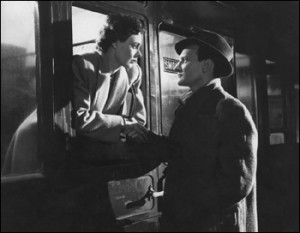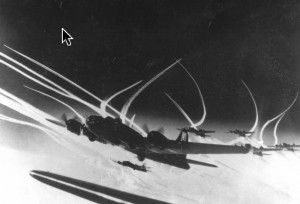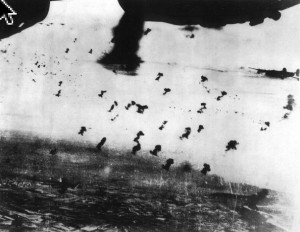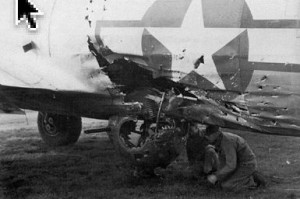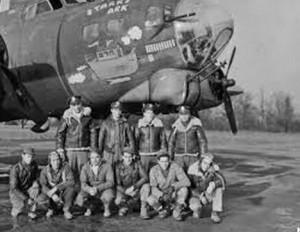For about 400 years or more, any man who wanted to look clean shaven had to shave the same way, with a straight blade. There weren’t any safety razors or electrics or Bics. And yes, thank-you, I do actually know it’s a trade name and so is Hoover, so don’t get cute when you know what I mean. There weren’s any cut-throat razors either, because there was never any such thing until Frederick and Oto Kampfe started lying about them to sell disposable razor blades in 1880, building on the 1847 Henson patent, which went on rather disturbingly about common hoes. Even today Wikipedia (surprise!!) repeats the same tired old meme about straight-blades:
“The initial purpose of these protective devices was to reduce the level of skill needed for injury-free shaving, thereby reducing the reliance on professional barbers for providing that service and raising grooming standards.”

So many Thatcherite plus-points in such a short sentence, and all ostensibly about shaving. Except as with most things in life, it’s much, much wider than it looks.
Let’s start with reducing the level of skill. Always seen as a massive bonus, it’s the next part that’s the really big lie snuck in there while you were thinking about people like Thomas Helliker. The bizarrely named King Camp Gillette whose parents must have really, really not wanted him at all patented his double-edged disposable razor in 1904. In the First World War he got a contract to supply the US Army with his razors and each soldier was allowed to keep his razor if he survived. Most of the three million Americans involved did and suddenly created a market not just for razors but much more important for a manufacturer, a demand for a new blade at least once a week. Gillette invented high-tempered steel litter.
Some older American houses still have a steel box set in the bathroom wall, the place to dump your old blunt blades. It’s not openable; in tune with the disposability of the blades, they thought that by the time the blade box was full the house would be disposable too. See any snags with this reasoning so far? One planet. Don’t spend it all at once.
So far as I know the German army issued straight-blades through World War Two, but the British Army had already switched. Within not very long, most men had forgotten two things almost every man had known for hundreds of years; how to wash his face and how to sharpen a straight blade. Obviously too, everyone was spending more on disposable blades and calling it saving money. A brand-new straight blade will cost from around £60 on up. The most expensive I’ve seen was nearly £800 and it will give the same shave as the cheaper one. The look of it was a different thing altogether. The cheaper one will last the same length of time as the expensive one too: the rest of your life. You’ll spend £60 on the cheapest disposables in the first year.
Reducing consumer reliance on anyone skilled, anyone who actually knows anything, anyone who actually looks after you even if you do have to pay them for it is always another neo-Con obsession. You shouldn’t BE looked after. You should scurry around in the dim light of a winter’s morning, splashing your stupid unloved face with cold water before you scrape up and down with a three-day old plastic Bic before you get out of the door with a piece of toast still sticking out of your mouth, all ready to spend another day commuting and working and earning and consuming. WTF do you want looking after for? Don’t you know why you’re even ON this planet in the first place?
And raising grooming standards. Mrs Thatcher was always very keen on high grooming standards. She was quite keen on saying things that weren’t true either (‘we don’t talk to terrorists’ just for one) and that’s a great one. How scraping your face with a plastic disposable is evidence of raised grooming standards is one of those great mysteries. Like if the IRA had plenty of people ready to die for the cause, how come the Brighton Bomb didn’t get its prime target?
Anyway. Sweeney Todd was a barber in London who was reputed to cut his victim’s throats and dispose of the bodies by turning them into pie fillings. More lies here, I’m afraid. There never was a Sweeney Todd, outside Victorian melodrama. If you actually did cut someone’s throat with a razor after the most stupid name going, which is perfectly possible but there is – trust me – no way you could possibly do it by accident, then there would be literally fountains of blood splattering six feet up the walls. Unless it was really, really foggy people might notice, just a bit. And even then they’d smell it anyway.
For me, that’s the silliest part. I’ve always but always cut myself with ‘safety’ razors. I hardly ever do with a straight blade. The idea that you could cut your throat is just stupid. You could. But not by accident. The idea alone stops you doing it, because when you start off you’ll cut yourself once. And you won’t even feel it. That’s the odd part. You’ll see the blood bright red through the lather or if you’ve been utterly stupid enough to run a finger along the blade to see if it’s sharp you’ll have seen but again not felt that actually, bizarrely, things are called razor-sharp because that’s what razors generally are and the thought alone sharpens you up of a morning, a bit like cycling or riding a motor-cycle. Shaving the old way isn’t a passive thing. You have to be involved. It’s not about choice.
First you need a decent razor, so you’ll do the thing everyone does and waste more than a good razor would have cost buying cheap crap ones off eBay. The only ones you’ll find at boot sales usually have chunks missing out of the blade where someone tried to sharpen a pencil or use it as a penknife. If you actually used one like this they say men with scars have more character, so it’s not all bad. Except it will have been and you definitely will have felt that.
Once you’ve got your razor you need to sharpen it and this is where the serious Me-Time comes in. Wierd stuff happens to the edge of the blade on a razor. After you shave the metal grows, or at least it uncurls from the slight bend the whiskers put in it before they got shaved off. Trust me on this. Not a foot or so like a magic sword, but at microscope level. If the ultra-utter edge of the blade has curled over then obviously it’s going to be blunt, so you have to rub it on a leather strop, pulling away from you with the sharp bit of the blade towards you, then turn it over and pull it back towards you. You’ll see why that’s important about now. But you can’t do that for about 24 hours after you’ve shaved with it or the edge won’t be right. Which is why rich folk and barbers used to have seven razors, one for every day of the week.
If you’re really into it (and today you’ll have to be because you won’t find an old-fashioned barber to do it for you because they all have to use disposable straight blades) you’ll buy a stone and hone the razor on that every couple of months. And in between use another leather strop with abrasive paste on it between times, not forgetting to dry it off each time you use it and oil it if you’re not going to use it for a couple of days. By which time, left alone, sometimes it’ll just go blunt anyway. Because it will.
The shaving part is more involved too. You need to get your face warm. Barbers do it with hot towels and it feels great. Soothing. Relaxing. As if you’re rich and someone cares. Then wash your face with soap and wash it all off. Then wash your face with soap and don’t wash it off, but lather up some different shaving soap with a brush and put that on. You’ve seen it on the films. And don’t forget to get the brush nice and hot first. You’ll notice the difference. Then do it. Use a decent mirror and it’ll be fine. Don’t lay it flat on your skin. Don’t put the blade at right angles to the cut. And for God’s sake don’t ever cut in the direction of the blade, because you’ll go straight through to your teeth before you know what’s happened. Think about that and you’ll never go wrong.
Then do it again. Then do it again the other direction. And dab what soap there is off, then cold water wash and moisturise and then perhaps some aftershave. And feel like a king, centred, focussed and truly, definitely sharper. Because you’ve been concentrating. Doing the thing you’re not supposed to do in a big consumer society. Not the not-buying-disposable-stuff every couple of days.
You just did the really bad consumer thing. For about fifteen minutes you shut everything else out. You meditated. You just focussed entirely on you.
It’s a new day. It’s a new life. And it feels good.





